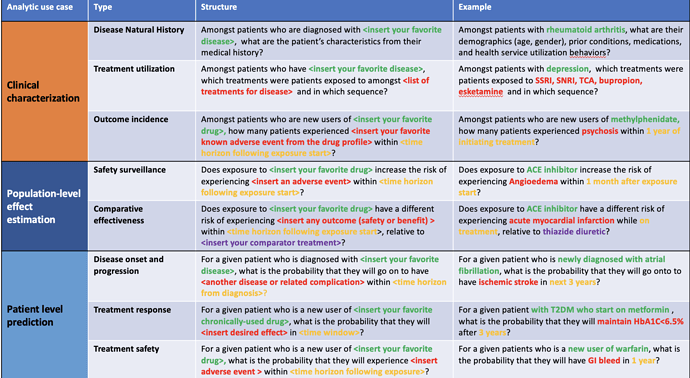Come join us! We are looking for your important clinical questions. Network studies are hard and you are not alone, we can do this together as a community.
The task of taking a research study from idea through design through execution through publication can seem a daunting challenge, much like rolling a boulder up a hill. That task is all the more challenging when researchers try to go it alone, as each step requires a distinct set of skills. Observational study design requires epidemiologic understanding and statistical methodological expertise. Implementing a study design requires statistical programming ability. Interpreting and reporting results requires domain knowledge of the clinical problem.
But when you are part of the OHDSI community, you never have to go it alone. And as a team effort, what seems an arduous task can become an efficient and effective process.
We are seeking important research questions that you want to contribute and participate in to take from idea to publication. The OHDSI community will provide support through every step of the process, working with you to design an appropriate protocol, implement a network analysis package, execute across OHDSI data partners, and prepare a manuscript for publication. Our goal is to collaboratively complete this network study over the course of 8 weeks across April and May, using the open-source tools and process that OHDSI has established.
Our 2023 SOS Challenge can focus on any of the three analysis use cases that we regularly discuss in OHDSI: clinical characterization-descriptive statistics for disease natural history and treatment utilization; population-level effect estimation-causal inference for safety surveillance and comparative effectiveness; or, patient-level prediction-machine learning for disease interception and precision medicine.
We are particularly interested in supporting junior researchers looking to conduct their first network analysis, but all OHDSI collaborators are welcome and encouraged to submit their ideas. If you are interested in participating in the SOS Challenge, please complete this form, where you’ll be asked to provide your research question and a statement about why you think your question is clinically important and should be answered by the OHDSI network.
Please submit your research study idea by 11:59pmET on Tuesday, February 28 using the link here https://forms.gle/DySfETJPtmwgquKv9
We will review all submissions at that time and identify a subset of those ideas based on potential impact and anticipated feasibility to present on an OHDSI community call on Tuesday, March 7, before opening up a vote to the entire community to select our SOS Challenge topic. If your research idea is selected, you agree to attend the weekly OHDSI community calls throughout the SOS Challenge and contribute to aspects of the study from design through publication.
